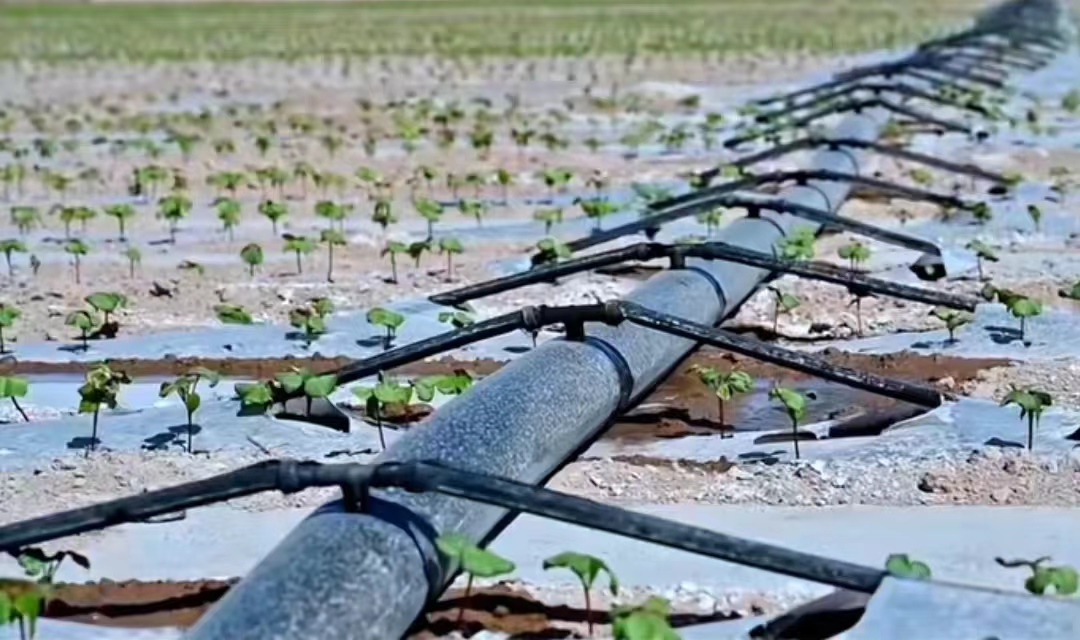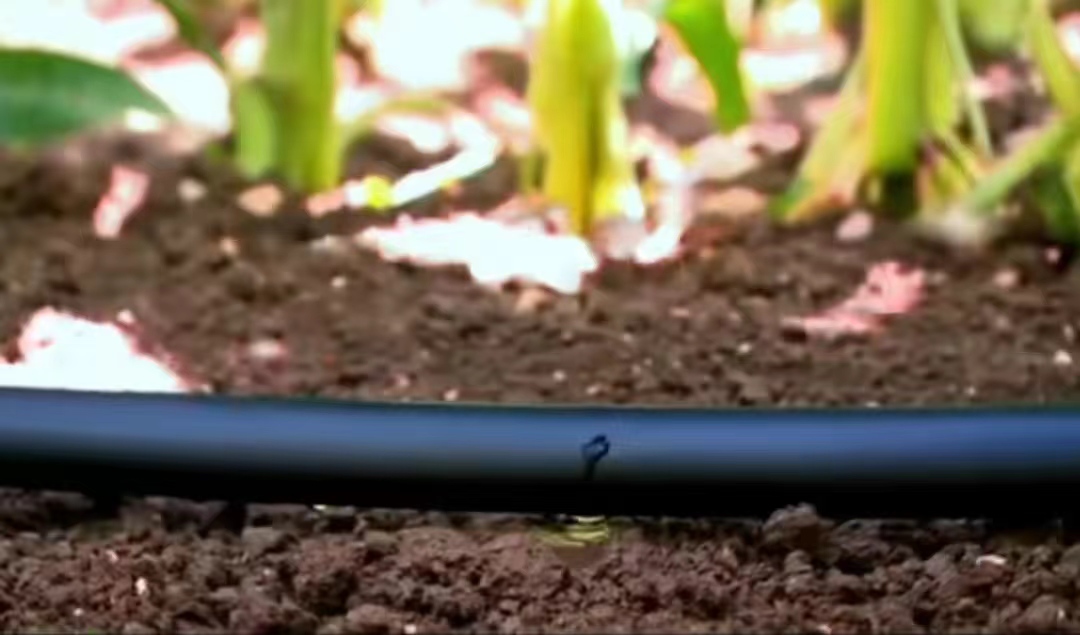Chinese, Guinea-Bissau presidents hold talks, elevate ties.
Xi stressed that China stands ready to strengthen friendly exchanges with Guinea-Bissau at all levels, enhance experience-sharing on governance, and expand cooperation in areas such as agriculture, mining, infrastructure construction and the blue economy under the guidance of the high-quality construction of the Belt and Road Initiative (BRI).
Xi said China welcomes high-quality agricultural products from Guinea-Bissau to enter the Chinese market, and encourages Chinese enterprises to invest and carry out cooperation in Guinea-Bissau and help Guinea-Bissau transform its resource potential into development momentum.
Drip Irrigation in African Fruit and Crop Production: An Overview
Introduction
Drip irrigation has emerged as a critical technology in addressing the challenges of water scarcity and increasing agricultural productivity in Africa. This method involves delivering water directly to the root zone of plants through a network of valves, pipes, tubing, and emitters. By minimizing water loss due to evaporation and runoff, drip irrigation significantly enhances water use efficiency and crop yields, making it an ideal solution for the continent’s diverse agricultural landscape.

Importance of Drip Irrigation for African Agriculture
Water Conservation: Africa is home to many arid and semi-arid regions where water scarcity is a significant concern. Drip irrigation can reduce water usage by up to 50% compared to traditional irrigation methods, ensuring that limited water resources are used more effectively.
Increased Crop Yields: Consistent and precise water delivery helps in maintaining optimal soil moisture levels, leading to improved crop growth and higher yields. Studies have shown that drip irrigation can increase crop yields by 20-50%.
Reduced Labor Costs: Automated drip irrigation systems reduce the need for manual watering, saving time and labor costs for farmers. This is particularly beneficial in regions where labor availability is limited.
Improved Nutrient Management: Fertigation, the process of delivering nutrients through the irrigation system, is more effective with drip irrigation. This ensures that plants receive the right amount of nutrients directly at the roots, enhancing growth and productivity.
Key Crops and Fruits Benefiting from Drip Irrigation in Africa
Fruits
Mangoes: Mango trees require consistent moisture for optimal fruit development. Drip irrigation ensures that water is delivered directly to the root zone, improving fruit size and quality.
Citrus Fruits: Oranges, lemons, and other citrus fruits benefit from regular and precise watering, which drip irrigation systems can provide.
Bananas: These water-intensive crops thrive with drip irrigation, which provides the necessary moisture without waterlogging the soil.
Pineapples: Pineapples require a well-drained soil environment, which drip irrigation helps maintain by delivering water efficiently and evenly.
Papayas: Regular watering through drip irrigation promotes healthy growth and fruit production.
Vegetables
Tomatoes: Consistent moisture levels provided by drip irrigation reduce the risk of diseases and improve fruit quality.
Peppers: Precise water delivery ensures that pepper plants receive adequate moisture without overwatering, enhancing yield and quality.
Onions: Drip irrigation helps maintain optimal soil moisture, reducing bulb rot and improving onion size and quality.
Carrots: Even and consistent watering is crucial for root development and uniform growth in carrots.
Grain Crops
Maize (Corn): Maize is a staple crop in many African countries. Drip irrigation can significantly enhance yields by providing consistent moisture during critical growth stages.
Wheat: Drip irrigation ensures that wheat plants receive the necessary water throughout the growing season, improving grain quality and yield.
Sorghum: This drought-resistant crop benefits from drip irrigation during dry spells, ensuring steady growth and productivity.
Millet: Drip irrigation supports millet cultivation by providing necessary moisture in arid regions.
Case Studies and Data
Kenya: In Kenya, farmers using drip irrigation for tomato cultivation have reported yield increases of up to 50% and water savings of up to 60%. The adoption of drip irrigation has also reduced labor costs by 40%.
Morocco: The Moroccan government has implemented large-scale drip irrigation projects to combat water scarcity. In regions like Souss-Massa, drip irrigation has increased citrus yields by 30% while reducing water usage by 50%.
South Africa: South African vineyards have successfully used drip irrigation to improve grape quality and yield. Drip irrigation systems in the Western Cape have led to a 20% increase in grape production.
Conclusion
Drip irrigation is a transformative technology for African agriculture, offering significant benefits in terms of water conservation, increased crop yields, and reduced labor costs. By adopting drip irrigation, African farmers can achieve sustainable agricultural growth, improve food security, and enhance their livelihoods. As the demand for efficient water use continues to rise, the importance of drip irrigation in Africa's agricultural future cannot be overstated.

About Us
We are dedicated to offering innovative, water-saving, and labor-saving irrigation solutions for agriculture worldwide. Our focus on quality and continuous innovation drives the development and progress of the industry.

